2023 Homeowner Guide: Solar Panel Cost In Florida
Learn how to estimate the cost to add rooftop solar panels to your Florida home
- Home
- Avg Cost Of Solar Panels
How Much Do Solar Panels Cost?
Solar panel costs have dropped significantly over the last decade and home energy systems are now more affordable than ever.
While project costs can vary, having an idea of what it might cost to switch to solar power can help you decide if it’s right for your home.
In this guide, we’ll cover the following:
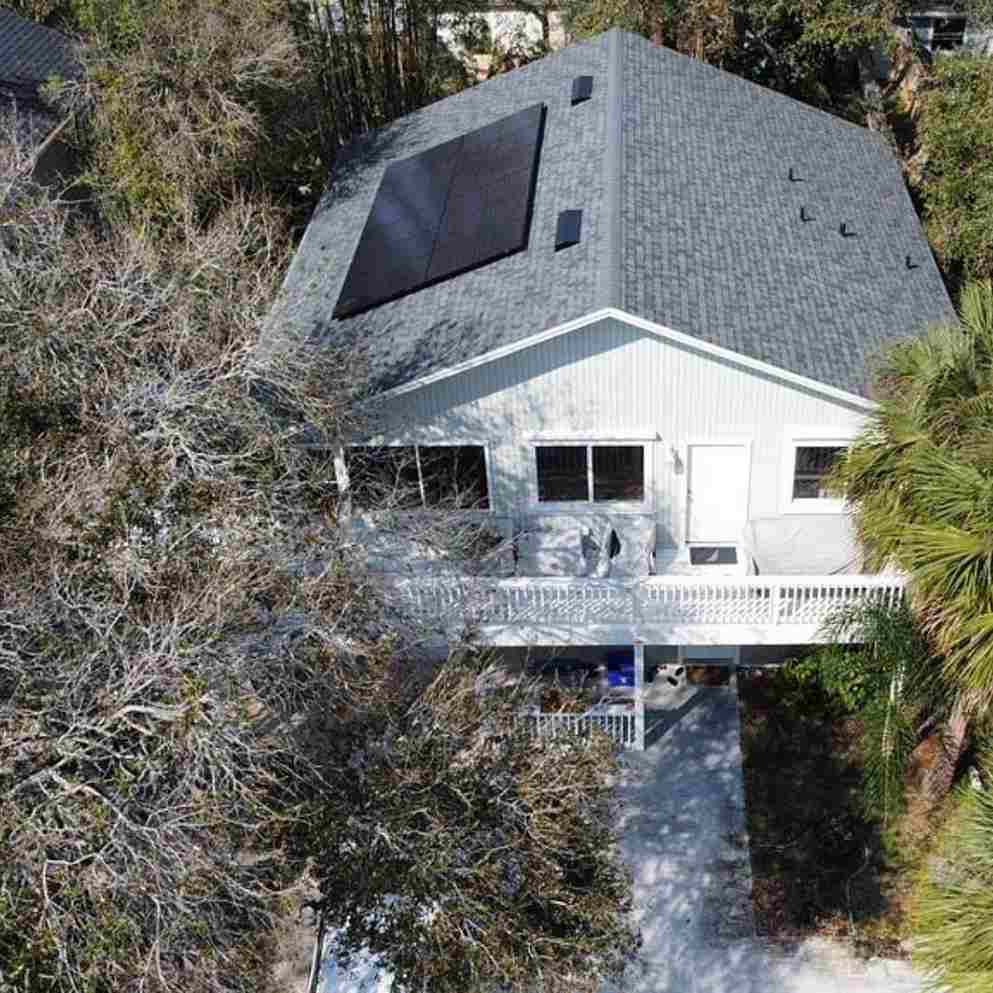

How Much Does It Cost To Go Solar In Florida?
Data shows the average cost to go solar in Florida is $35,000 if you don’t qualify for the federal tax credit. If you do qualify, the average solar panel project cost is $24,500. However, project costs vary based on system size, tax credit, and financing costs. This data table can be used to estimate your solar panel cost based on your approximate roof size.
| System Size | Avg Price Before Federal Tax Credit | Avg Price After Federal Tax Credit | Appropriate Roof Size (sq ft) |
|---|---|---|---|
| 9 kW | $26,250 | $18,375 | 1,350 |
| 10 kW | $29,166 | $20,416 | 1,500 |
| 11 kW | $32,083 | $22,458 | 1,650 |
| 12 kW | $35,000 | $24,500 | 1,800 |
| 13 kW | $37,916 | $26,541 | 1,950 |
| 14 kW | $40,833 | $28,583 | 2,100 |
| 15 kW | $43,750 | $30,625 | 2,250 |
*Source https://www.ecowatch.com/ Average system costs are based on residential solar projects installed in 2021 across the state of Florida. Your actual project costs could vary.
Breakdown Of Solar Panel Costs
The total cost of a home solar system includes more than just the cost of each individual solar panel. Even the most basic system will require roof mourning hardware, inverters, wiring, and electrical hookups. For the average home energy system, solar panel costs can be broken down into five categories.
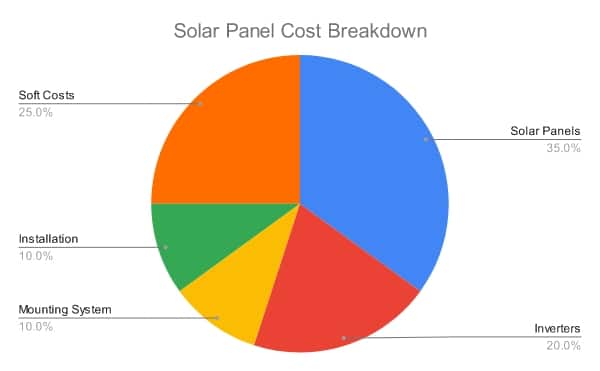
Home Energy System Components
While knowing the average cost of Florida solar panels can be helpful when budgeting, the final project cost can vary based on home size and each component of the system.
- Solar Panels
- Inverters
- Mounting System
- Installation Costs
- Soft Costs
Florida homeowners have several options to choose from when it comes to selecting solar panels. Prices vary between manufacturer, type of panel (monocrystalline, polycrystalline, thin-film) and efficiency rating. Generally, a higher quality solar panel comes with a higher price tag.
Without inverters, your home solar system will not work. This device converts the energy created from each solar panel into a usable form for your home and the grid.
In the past, all solar panels would be connected to a single inverter. While this lowered costs, the entire system would stop working if one solar panel went down. Now, solar energy systems are designed so that each panel has its own inverter meaning the system will stay functional even if one panel drops.
The importance of a quality solar mounting system cannot be overstated, especially here in Florida, where hurricanes are common. At Raze Solar, we suggest homeowners use the IronRidge mounting system created to withstand winds 150+ mph.
Solar panel installation costs can vary depending on the home's size and roof complexity. In general, projects with a high number of solar panels will cost more.
What most online solar project calculators fail to include in the cost breakdown are the city permit fees, application fees to the utility company, financing costs, and the labor cost to design and engineer the system. Additional system components like solar batteries and car chargers can also increase project costs.
Get Help From A Licensed Solar Expert
What Would It Cost You To Go Solar?
The easiest way for you to calculate the cost of solar panels for your home is to request a free quote from our experts.
We will analyze your existing energy usage, determine the best placement to maximize production, and design a system that allows you to save money on energy costs.
From there, you can see the exact breakdown of solar costs to determine if it makes sense for your home and specific energy needs.
Find Out Your Costs To Switch
By clicking “Get Started”, I authorize Raze Solar to contact me regarding solar products using the phone number I entered, even if I am on a “do not call” list. Message and data rates may apply. Consent here is not a condition of purchase. Please read our Privacy Policy for more information on how we collect personal information.
Factors That Impact Solar Panel Costs
Comparing solar panel quotes or looking for ways to save? Learn what factors influence the cost of solar panels.
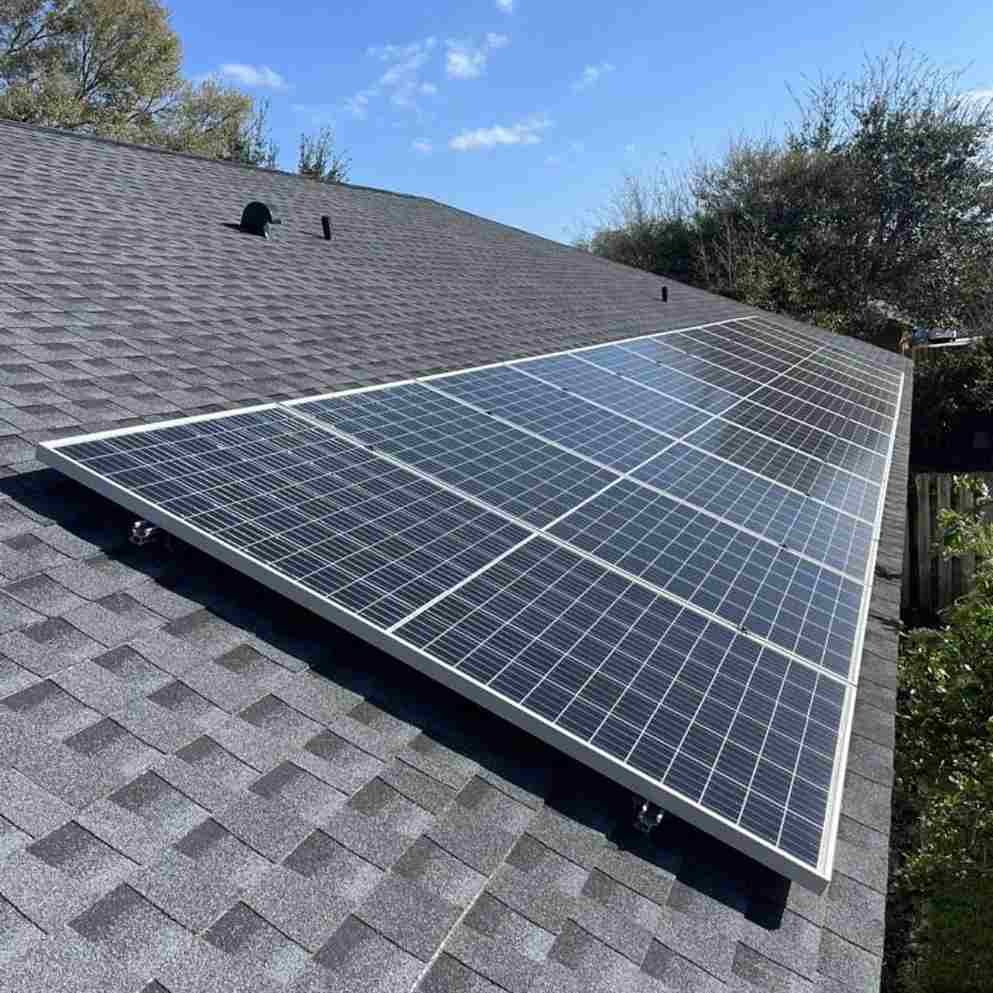
Solar Panel Cost Variable #1
System Size
Larger home energy systems will require more solar panels and components and thus increase costs across the board. Making sure to work with a licensed solar energy company in Florida is one way to ensure you buy a properly sized system. One too large will increase project costs and reduce long-term savings, while one too small will not cover all electricity needs.
Solar Panel Cost Variable #2
Solar Panel Type
There are three main types of solar panels: monocrystalline, polycrystalline, and thin film. Each type varies in efficiency, longevity, and price.
These are the best option for Florida homes. They are cut from a single source of silicon which makes them more efficient and take up less space. In addition, they have the longest lifespan and work well in warm weather, both of which are important for Florida homeowners. This is the most expensive type of home solar panel.
This type of panel is blue in color and are created by blending multiple sources of silicon. This is what makes them about 20% less efficient. Price is related to energy efficiency levels, so Florida homeowners can expect to pay 20% less compared to monocrystalline solar panels.
These are flexible and best suited for smaller projects like a shed or RV. They are made of one or more layers of thin-film material that absorb light and produce electricity. They’re made using amorphous silicon thin film, cadmium telluride thin film, gallium arsenide or copper indium gallium selenide. These are the least expensive type of solar panels, but they also have lower lifespans and warranty periods, making them less than ideal for Florida homes.
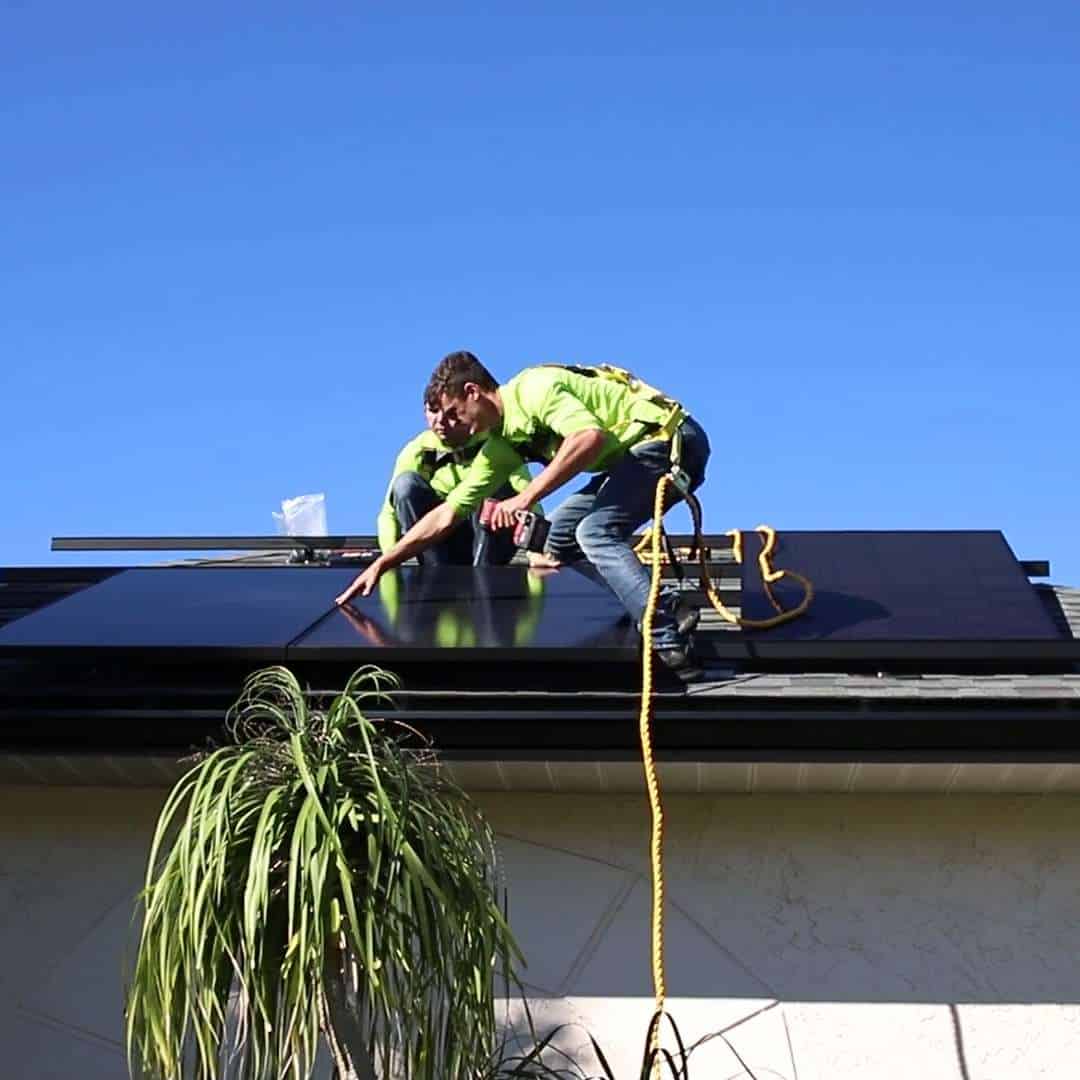
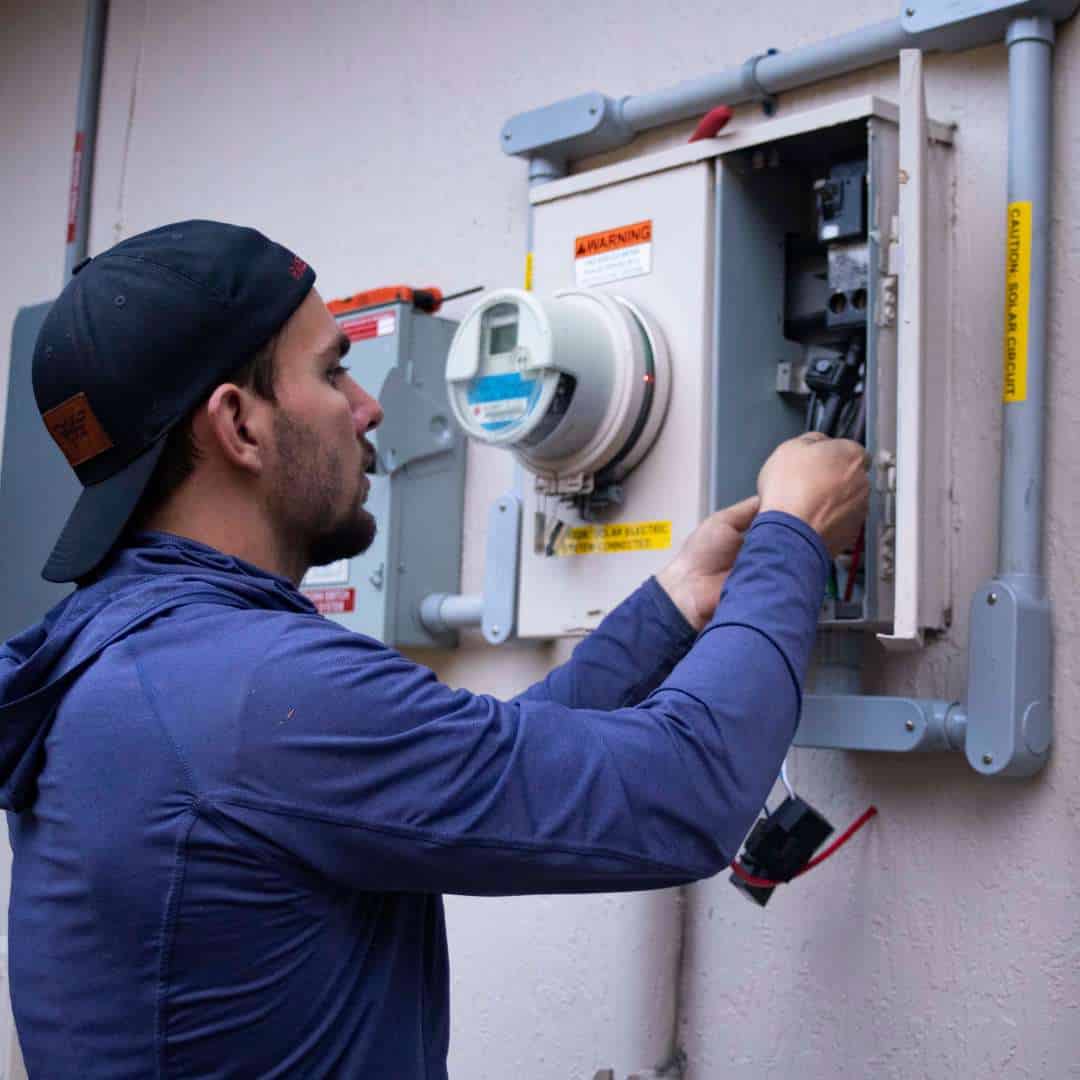
Solar Panel Cost Variable #3
Solar Batteries / Connection Type
Adding one battery can double or triple the costs of solar panels. Each solar battery (larger homes need multiple) can cost upwards of $10,000. In addition, extra solar panels will have to be added to maintain battery levels and ensure they remain full.
Forgoing solar batteries and remaining connected to the energy grid is the single best way to reduce solar panel costs. Also called net-meeting, this type of solar connection allows you to earn credits for extra energy produced and sent back to the grid. Florida Power & Light, Gulf Power, Duke Energy, and Tampa Electric Company all offer net metering programs.
Solar Panel Cost Variable #4
Tax Credit
The solar tax credit can cut project costs by 30%, but only if the tax credit amount is less than your tax liability. Put another way, this is a nonrefundable tax credit which means you cannot use it to get money back from the government if you did not pay enough in taxes for that year. This can limit savings for those that are retired or on limited incomes.
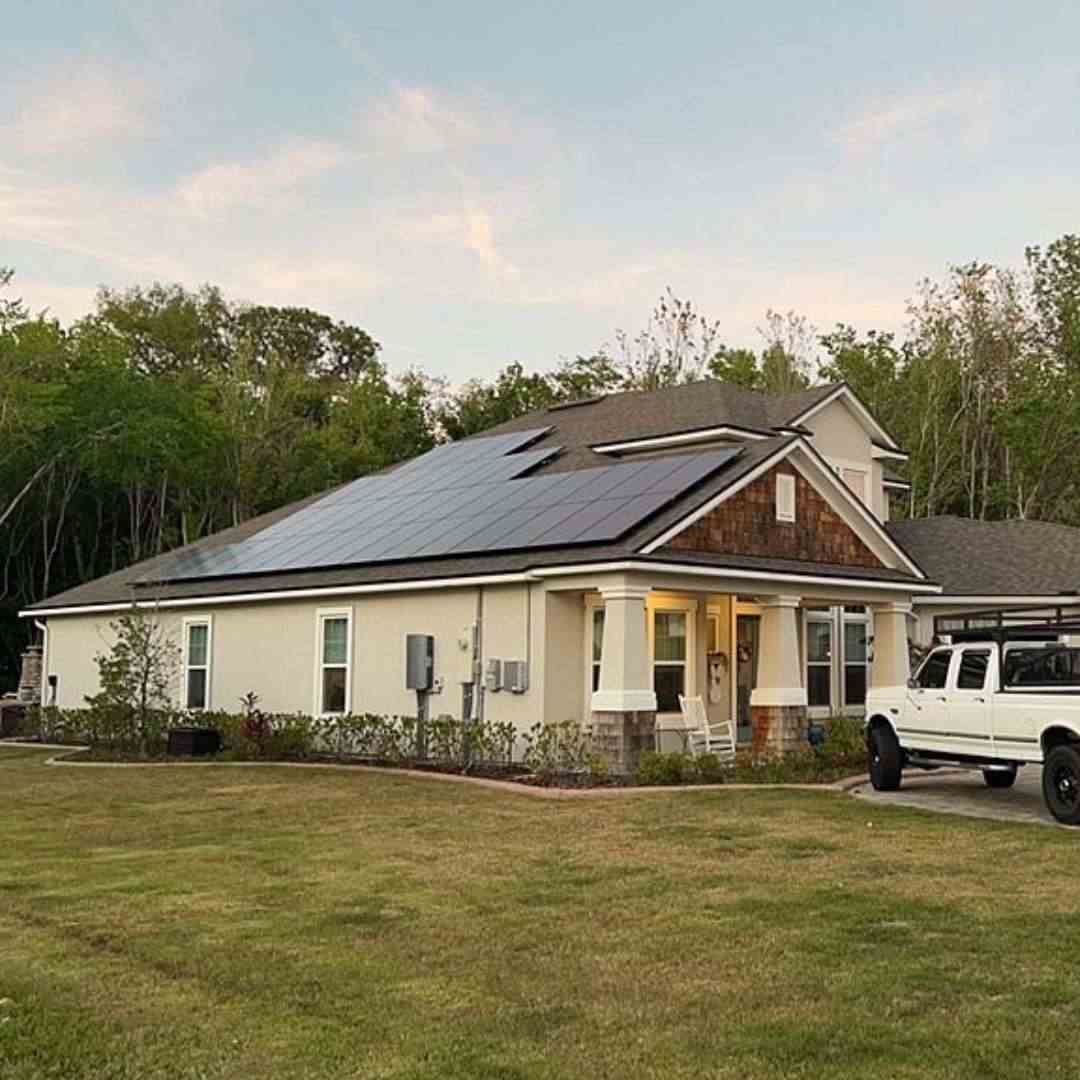
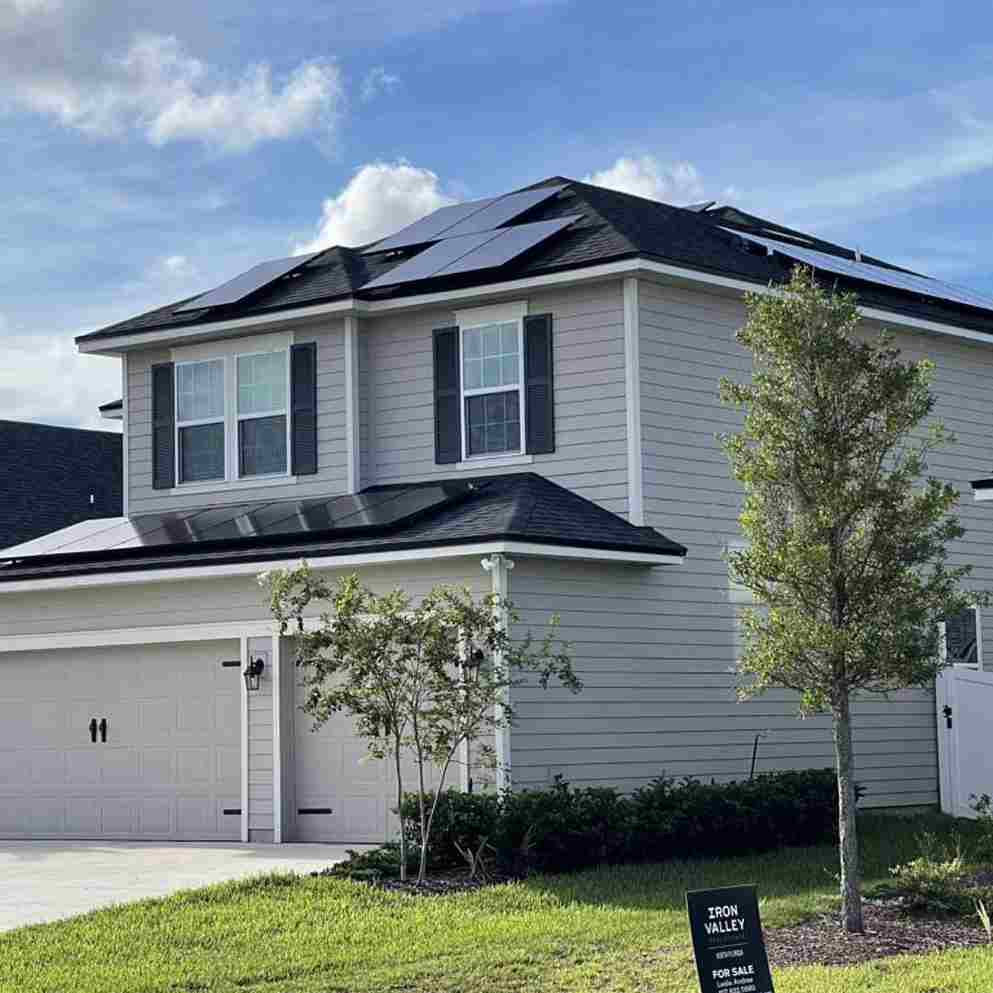
Solar Panel Cost Variable #5
Payment Method
Paying for solar panels using cash is the most cost-effective option and helps you avoid down payments, interest, and finance charges. However, this is not feedable for most Florida homeowners. Special financing does exist for home energy systems, but homeowners need to understand that extra fees can increase solar panel costs.
Get Help From A Florida Solar Installer
Calculate Solar Panel Costs For Your Home
Knowing how many panels you need and the costs associated with switching to solar can be difficult and time-consuming for any homeowner. Let our experts do it for free!
We will visit your home to provide a free roof inspection, calculate your energy needs, and design a home solar system to maximize productivity and eliminate your energy bill. The best part is that it’s 100% free and no-obligation. Schedule online and know the true cost of solar panels for your home!
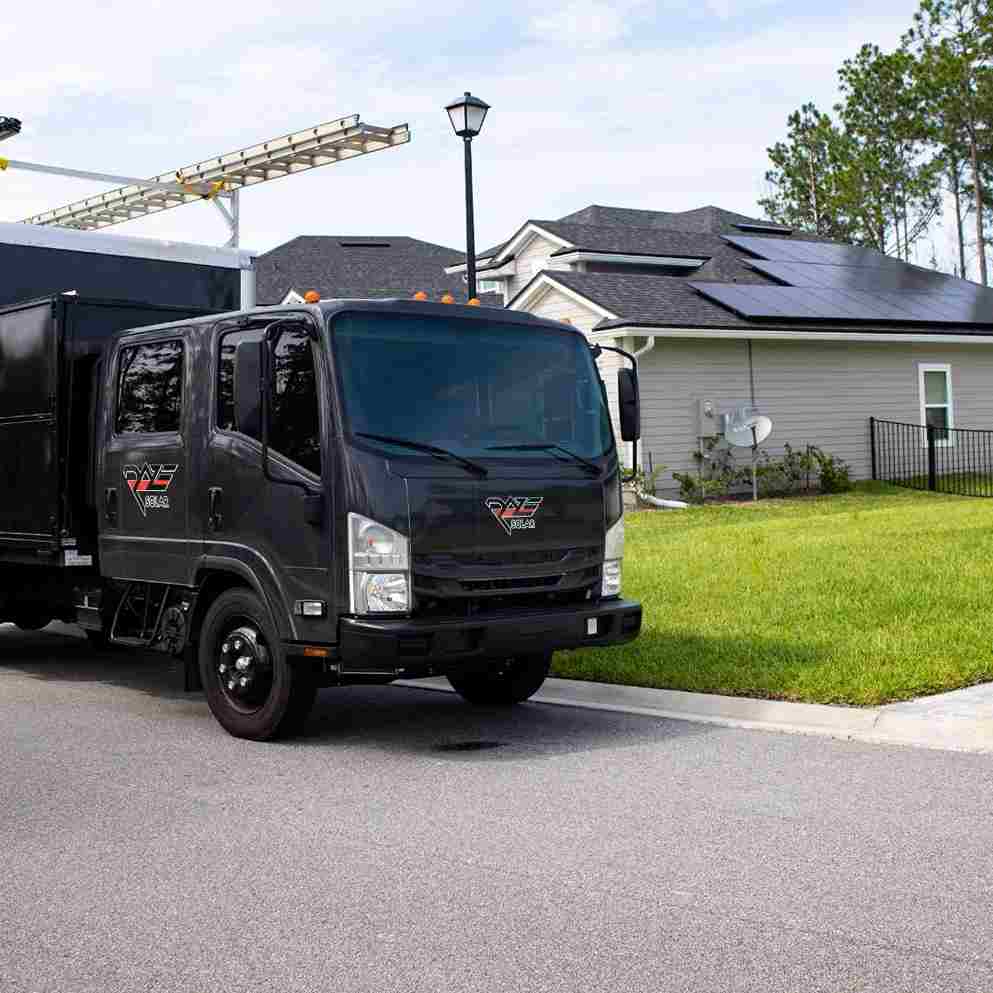
How To Evaluate Solar Panel Costs In Florida
Having a uniform way to calculate solar costs can help you compare quotes to get the best deal and compare the cost of solar to grid energy to calculate lifetime savings. There are two main ways you can do this:
- Price per kWh – comparing solar cost to grid energy
- Price per watt – comparing quotes from multiple solar companies
- Solar Panel Cost Expressed As Price Per kWh
- Solar Panel Cost Expressed As Price Per Watt
Calculating solar panel price per kilowatt-hour (kWh) lets you compare the price of solar to the price of grid energy. The average cost of grid energy in Florida is 14 cents/kilowatt-hour. If the cost of solar is less than that, it indicates your home is a good fit for solar panels, and you could save money long-term by making the switch.
What is a kilowatt hour? A kilowatt-hour is a unit of energy and is equivalent to consuming 1,000 watts – or 1 kilowatt – of power over one hour.
Price per kilowatt hour = net cost of the system/lifetime production output
To calculate solar panel costs as price per kWh take the net cost of the system (contract price - tax credit) and divide it by the lifetime output of the system. Compare that to the price per kWh that you pay for grid energy.
For Florida homeowners, the average cost of solar in kWh ranges from 6-9 cents. Unlike grid energy which can increase in cost at any time, the cost of solar will remain the same for the lifetime of the panels.
The price per watt of a solar energy system is calculated by dividing the contract price by the number of watts the system will produce.
Price per watt = gross system price/watts of system
In Florida, the average price per watt of solar is $3.00 - $4.00. Because this method measures a system's relative amount of power, it makes it easy to compare multiple solar panel quotes to determine the best deal, even if they are for different panels, manufacturers, or efficiency ratings.
Recap Of Ways To Evaluate Solar Costs In Florida
| SOLAR PRICE PER WATT | SOLAR PRICE PER KILOWATT-HOUR |
|---|---|
| GROSS system cost / Total system wattage | NET system cost / Total lifetime system production |
| Useful for comparing solar quotes against one another | Useful for comparing solar versus utility bill |
| Pertains to the POWER of a system | Pertains to the PRODUCTION of a system |
| Typically $3.00-4.00/watt | Typically $0.06-0.09/kWh |
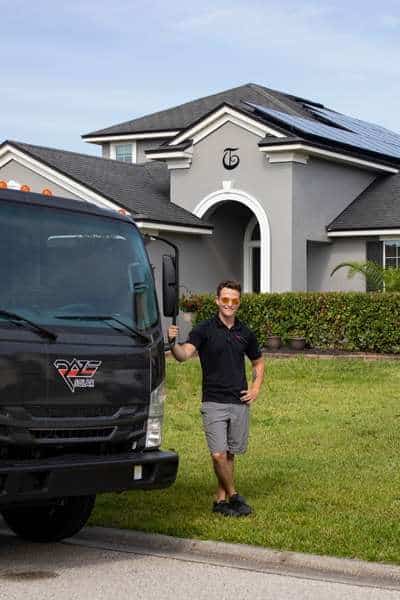
Why Choose Raze Solar
Work With The Best Florida Solar Installer
We offer premium quality products, workmanship, and warranty service to homeowners looking to install solar panels in Florida.
Our highly trained, certified, and experienced team specializes in complex projects, including those with specialty roofs like clay tile, metal, and concrete. If you are looking for the best Florida solar installer, Raze Solar has your home covered.
- Hassle-Free Service
- Best Solar Products
- Lifetime Warranties
- Fast Permitting
- In-House Financing
- Licensed Roofers
Solar Panel Cost FAQs
Don’t install solar batteries. If your budget is tight, we recommend going with a grid-tied solar energy system. This will save you thousands in project costs and allow you to break even on the investment faster.
Claim the solar tax credit. The second way to lower solar panel installation costs is to speak to a tax professional and make sure you qualify. This will allow you to recoup 30% of project costs.
Check for local/state solar incentives. Jacksonville, Boynton Beach, and Dunedin homeowners may qualify for additional local solar incentives to reduce the cost of solar panels.
- Jacksonville offers $2,000 in rebates for installing a solar battery
- Boynton Beach offers up to $1,500 in rebates for installing a PV system with an efficiency of over 17.5%
- Dunedin has a grant program that provides up to $2,500 in rebates for energy produced with your system
- Duke Energy customers can get a cashback incentive for performing an energy audit on your home and for installing an electric vehicle (EV) charger.
Yes, homeowners can finance the cost to go solar in Florida. In fact, several programs are available that are tailored to the needs of homeowners and offer $0 down, competitive rates, and terms up to 25 years. Homeowners can also get financing through a bank or credit union through a home loan or HELOC. Financing does not impact your ability to claim the solar tax credit.
Calculating the project's ROI or return on investment is one way to determine your payback period when switching to solar. Using the estimated project costs and projected lifetime savings, you can calculate how long it takes to save the amount you invested. For most Florida homeowners, it’s anywhere from 9-15 years. Learn more in our Solar ROI Guide.
No, there are currently no programs that provide free solar panels to homeowners. However, financing programs allow you to switch to solar with $0 down and $0 out of pocket.
Many variables influence the cost of going solar for Florida homeowners - many of which can be hard to calculate. The best way to learn the true cost of solar panels for your home is to get a quote from a licensed solar energy company like Raze Solar.
Our experts will analyze your home’s energy usage, your roof, and design a system that operates with maximum effectivity to eliminate your energy bill. Plus, we will provide a detailed cost and savings breakdown, so you can decide if switching makes sense for your home and budget. It’s free to get started - call (904) 595-6835 or schedule online now!
